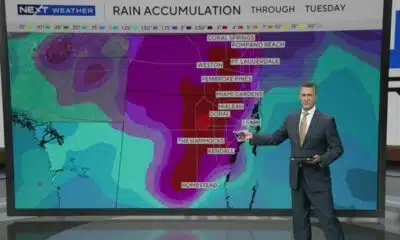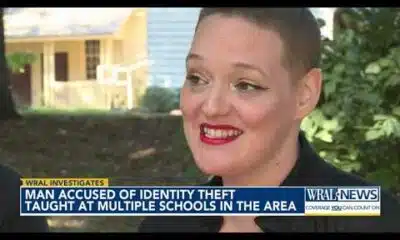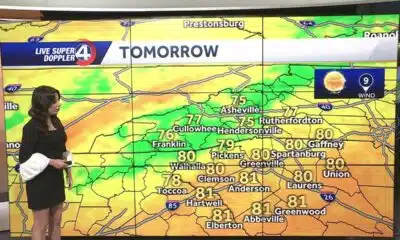News from the South - West Virginia News Feed
Tracking Medicaid patients’ work status may prove difficult for states
p>by Shalina Chatlani, West Virginia Watch
July 17, 2025
States must begin verifying millions of Medicaid enrollees’ monthly work status by the end of next year — a task some critics say states will have a hard time carrying out.
A provision in the tax and spending bill President Donald Trump signed into law July 4 will require the 40 states plus Washington, D.C., that have expanded Medicaid to check paperwork at least twice a year to ensure those enrollees are volunteering or working at least 80 hours a month or attending school at least half time.
The new law provides states $200 million for fiscal year 2026 to get their systems up and running. But some experts say states will have difficulty meeting the deadline with that funding and worry enrollees might lose their health benefits as a result.
A year and a half to comply is likely not going to be enough time for most states, especially since the federal government must craft guidance on how they should implement their programs, said Dr. Benjamin Sommers, a health economist at Harvard T.H. Chan School of Public Health. He predicted it will be difficult to create technology simple enough — such as a phone app — to streamline the process for all enrollees.
“Two hundred million [dollars] is not going to cover the 40 expansion states that we have,” he told Stateline. “There is not a silver bullet here, and there isn’t a single app out there that’s going to keep people who should be in Medicaid from losing coverage. That’s just not realistic.”
A spokesperson for the North Carolina Department of Health and Human Services, Hannah Jones, told Stateline that “it will take a significant amount of time and investment in order to implement work requirements.”
Jones said an estimated 255,000 people in North Carolina could lose coverage because of these requirements and their “administrative burden.”
“More automation reduces manual work on beneficiaries and eligibility case workers, but it requires more time, funding, and staff resources to implement,” Jones wrote in an email.
Emma Herrock, a spokesperson for the Louisiana Department of Health, wrote in an email that the vast majority of the state’s Medicaid enrollees already work, and the agency expects few people to be disenrolled. Herrock said the department will establish work verification systems by the end of 2026.
“The department is taking a thoughtful approach to implementation,” Herrock wrote. “We are already working with several Louisiana agencies … in order to receive data on recipients who are working.”
She added that the department views work requirements “as a means to grow our economy, while reinforcing the value of work and self-sufficiency.”
In New York, it could cost the state $500 million to administer the new requirements, New York Department of Health spokesperson Danielle De Souza wrote in an email.
Between 600,000 and 1.1 million individuals who are eligible for and enrolled in Medicaid could potentially lose coverage because of work reporting requirements, she wrote, based on what happened when states were required to resume checking eligibility after the COVID-19 health emergency ended.
“The department will remain steadfast in its commitment to protecting the health of all New Yorkers and will work to mitigate the impacts of this law,” De Souza wrote.
The new rules apply to states that expanded Medicaid to adults between the ages of 19 and 64 with incomes below 138% of the federal poverty line (about $22,000 for an individual), an option that was made available under the 2010 Affordable Care Act. More than 20 million people were enrolled through Medicaid expansion as of June 2024 — those are the patients who will face work requirements.
There isn’t a single app out there that’s going to keep people who should be in Medicaid from losing coverage. That’s just not realistic.
– Dr. Benjamin Sommers, health economist at Harvard T.H. Chan School of Public Health
Reapplying for Medicaid, which typically has been required once a year, already is burdensome for some patients, said Dr. Bobby Mukkamala, president of the American Medical Association.
“On top of that, now we’re going to be challenging so many people who were at least able to deal with it financially with things like … proving that they got a job,” Mukkamala said in an interview.
Previous attempts at implementing work requirements have ended up costing states millions in administrative and consulting fees. And in some cases, people who were eligible for Medicaid lost their coverage due to paperwork issues.
Arkansas’ example
Several states wanted to implement work requirements during the first Trump administration. But only Arkansas fully did so, in 2018, before a federal judge halted the requirements. More than 18,000 Arkansas residents lost Medicaid coverage during the 10 months the requirements were in effect.
Sommers, of Harvard, noted that most people were disenrolled because they didn’t know about the policy or made paperwork errors, not because they weren’t working.
“Red tape led to people losing their coverage,” he said. “They had more trouble affording their medications. They were putting off needed care.”
Brian Blase, president of the Paragon Health Institute, a conservative policy group that advises congressional Republicans, said he thinks concerns about the new requirements are overblown because there’s more advanced technology now.
“Lots of government programs have initial implementation challenges,” Blase told Stateline. “Arkansas was seven years ago, and if you just think about the change in the technological advancements over the past seven years … we didn’t have artificial intelligence and just the ability of modern tech.”
As it stands, each state has varying technological capabilities, and will have a different timeline and budget, said Michael Heifetz, a managing director at consulting firm Alvarez & Marsal and a former Medicaid director in Wisconsin. His team contracts with states to implement Medicaid, including work requirements, and other programs.
He also noted that the Trump administration can give states a deadline extension on implementing work requirements to Dec. 31, 2028, if they show they are making a “good faith effort.” States will need to share data across agencies in new ways, he said.
“It will require some form of data sharing and communications with educational agencies, workforce training agencies and some other agencies that typically aren’t in the Medicaid ecosystem,” Heifetz said.
State governments may resist hiring full-time positions for those tasks, he said, but “artificial intelligence and other tools can help work through these processes in a smoother fashion.”
Other state efforts
Efforts in other states to implement work requirements have had mixed results.
In Georgia, for example, an experimental work requirement program cost taxpayers more than $86 million in its first 18 months but enrolled just 6,500 people during that time, according to an investigation by ProPublica and The Current published in February. That’s 75% fewer participants than the state had estimated for the program’s first year.
The nonpartisan U.S. Government Accountability Office in 2019 looked at five states that tested systems to track Medicaid work requirements under the first Trump administration. Those demonstration projects were rescinded during the Biden administration.
The states estimated their projected administrative costs for implementing work requirements for one to three years, and the total far surpassed the $200 million Congress has provided in the new law. Kentucky alone estimated $270 million, Wisconsin $70 million, Indiana $35 million, Arkansas $26 million and New Hampshire $6 million.
Susan Barnidge, an assistant director on the GAO health care team and an author of the report, said the agency found that across states there wasn’t much federal oversight of administrative costs on test programs. Oversight will be key as states roll out their work requirement systems, she said.
“We found some weaknesses in [federal] Centers for Medicare & Medicaid oversight of certain federal funding for certain administrative activities. So we found examples of things that states sought federal funding for that didn’t appear to be allowable,” Barnidge said in an interview. “I think that will remain relevant.”
Mukkamala, of the American Medical Association, said the burden will in some ways fall to doctors’ offices to help keep patients enrolled, as they work with patients to check eligibility and possibly help get them on Medicaid. He works in Flint, Michigan, as an otolaryngologist, or ear, nose and throat doctor, and said a third of his patients are on Medicaid.
“As if it’s easy to take care of their health care issue, given things like prior authorization,” Mukkamala told Stateline. “Now to add to the challenge, we have to figure out how to get them covered.”
Stateline reporter Shalina Chatlani can be reached at schatlani@stateline.org.
GET THE MORNING HEADLINES.
West Virginia Watch is part of States Newsroom, a nonprofit news network supported by grants and a coalition of donors as a 501c(3) public charity. West Virginia Watch maintains editorial independence. Contact Editor Leann Ray for questions: info@westvirginiawatch.com.
The post Tracking Medicaid patients’ work status may prove difficult for states appeared first on westvirginiawatch.com
Note: The following A.I. based commentary is not part of the original article, reproduced above, but is offered in the hopes that it will promote greater media literacy and critical thinking, by making any potential bias more visible to the reader –Staff Editor.
Political Bias Rating: Center-Left
The content critically examines the implementation of Medicaid work requirements, highlighting concerns about administrative burdens, potential loss of coverage for vulnerable populations, and the challenges states face in complying with new federal rules. It emphasizes perspectives from health economists and medical professionals who caution against the policy’s practical impacts, suggesting skepticism about the effectiveness and fairness of work requirements. While it includes some viewpoints supportive of the policy and technological optimism, the overall tone leans toward questioning the policy’s consequences and emphasizing the difficulties faced by Medicaid recipients, aligning it with a center-left perspective that generally favors expanding access to social safety net programs and is wary of restrictions that could reduce coverage.
News from the South - West Virginia News Feed
WV Supreme Court will hear BOE’s appeal in vaccine lawsuit — but not right away
by Lori Kersey, West Virginia Watch
September 5, 2025
West Virginia’s highest court will take on a legal battle over the state’s school vaccination requirements, but it denied a request by state school officials that it do so quickly.
The state Supreme Court on Thursday set a deadline of Dec. 12 for the West Virginia Board of Education to prepare its appeal of a Raleigh County judge’s July ruling against it. That ruling was in regards to a lawsuit brought by three Raleigh County families over the board’s refusal to accept religious exemptions to the state’s mandatory school vaccine requirements.
Raleigh County Circuit Judge Michael Froble in July granted a preliminary injunction in the case that allows students in the case to attend class with a religious exemption to the vaccination requirements.
The school board had filed notice of appeal and asked the high court to both expedite a review of the appeal and temporarily halt the proceedings in the lower court.
In the scheduling order Thursday, the court denied both motions. Justices also set a deadline of Jan. 26 for the plaintiffs in the case to respond to the board’s appeal. The board will then have until Feb. 16, 2026 to write a reply, if necessary.
After the Feb. 16 reply brief deadline, the court writes, the appeal will be ready for review.
The Raleigh lawsuit is one case in a legal battle over religious freedom and the state’s strict school vaccination requirements. Every state requires school students to be vaccinated against a number of infectious diseases including polio, chicken pox and measles. Florida officials announced this week plans to eliminate its vaccine mandates.
West Virginia has been one of only five states that have not allowed students to opt out of the shots because of their religious or philosophical objections to them.
West Virginia Gov. Patrick Morrisey issued an executive order on his second day in office requiring the state to allow religious exemptions. His order is based on the 2023 Equal Protection for Religion Act. He argues that the religious freedom law, when read alongside the vaccination law, calls for the religious exemptions.
Morrisey has not rescinded that executive order, even though the state Legislature earlier this year rejected a bill that would have established those religious exemptions in state code.
Raleigh County Circuit Judge Michael Froble has scheduled a two-day hearing next week on a permanent injunction in the lawsuit, which he recently consolidated with a lawsuit brought against the state health department by two parents of immunocompromised students over its issuance of religious exemptions. Plaintiffs in that case are represented by the ACLU of West Virginia and Mountain State Justice.
The hearing is set for Sept. 10 and 11 at the Raleigh County Judicial Center. During that hearing, the judge has said he wants to consider issues that include whether the state’s vaccination law is constitutional without religious exemptions and the authority of Morrisey’s executive order.
YOU MAKE OUR WORK POSSIBLE.
West Virginia Watch is part of States Newsroom, a nonprofit news network supported by grants and a coalition of donors as a 501c(3) public charity. West Virginia Watch maintains editorial independence. Contact Editor Leann Ray for questions: info@westvirginiawatch.com.
The post WV Supreme Court will hear BOE’s appeal in vaccine lawsuit — but not right away appeared first on westvirginiawatch.com
Note: The following A.I. based commentary is not part of the original article, reproduced above, but is offered in the hopes that it will promote greater media literacy and critical thinking, by making any potential bias more visible to the reader –Staff Editor.
Political Bias Rating: Centrist
The content presents a factual and balanced overview of the legal dispute surrounding vaccine exemptions in West Virginia without evident partisan language or framing. It reports on actions taken by government officials, court decisions, and ongoing lawsuits from multiple perspectives, including those of the state board, families, and advocacy groups. The neutral tone and focus on legal developments suggest a centrist approach, aiming to inform rather than persuade toward a particular political viewpoint.
News from the South - West Virginia News Feed
Christian’s Morning Forecast: Strong to Severe Storms Incoming
SUMMARY: Storm Watch meteorologist Christian Boler reports strong to severe storms approaching West Virginia, especially McDow, Tazewell, and Wyoming counties during the morning commute. Temperatures will remain in the upper 60s to low 70s with southwest winds around 5-10 mph. A marginal severe weather threat exists across the region, mainly involving winds and flooding, but no tornadoes or hail expected. Rainfall of a quarter to half an inch is likely over 48 hours with isolated downpours. Storms will arrive in two waves before clearing Friday. Another front may bring showers Saturday, but high pressure will clear skies for the weekend and beyond.
FOLLOW US ON FACEBOOK AND TWITTER:
https://facebook.com/WOAYNewsWatch
https://twitter.com/WOAYNewsWatch
News from the South - West Virginia News Feed
More states guarantee students the right to school-day religious instruction off campus
by Robbie Sequeira, West Virginia Watch
September 4, 2025
In the past month or so, federal courts have dealt a string of blows to conservatives’ push for the biblical Ten Commandments to be posted in public schools.
Yet as states lose over required religious displays, many are working on another route to faith-based education by allowing kids to attend off-campus religious instruction. This year, Iowa, Montana, Ohio and Texas passed laws guaranteeing parents the right to have their children excused during the school day for free, off-campus religious instruction, often called “released time.”
Those four states are the latest of at least 12 that require school districts to offer released time religious schooling upon parental request, including: Florida, Hawaii, Kentucky, New York, North Dakota, Pennsylvania, Vermont and Wisconsin.
The released time approach may be more likely to pass constitutional muster than other government-imposed religious efforts, experts say, by shifting influence off school grounds and under the direction of faith-based groups rather than public school teachers, and by making it free to students.
A 1952 U.S. Supreme Court decision in Zorach v. Clauson allows for released time religious instruction as long as it’s off school property, privately funded and parent permitted.
“Not every family has access to private or parochial school, but for many generations families have been able to take their students out of school for a portion of the day for religious education if they choose,” said Jennifer Jury, a program advocate for LifeWise Academy, an Ohio-based Christian nonprofit founded in 2018.
The organization has been active in expanding its reach and lobbying lawmakers for stronger legislative support. This school year, LifeWise expects to serve nearly 100,000 public school students across 1,100 schools in 34 states, Jury said.
The off-campus gatherings work the same way in most states: With parents’ approval, public school students sign out of school during a lunch, recess or study hall block. Students will either walk or ride one of the distinctive red LifeWise buses to a local church or a program-leased community building in town.
And depending on state limitations for the religious instruction, for either a half or full hour, kids will learn about the Bible. When the allotted time is up, students go back to their public school to finish the day.
In some states, students can earn academic credit for the off-campus instruction, which has been more controversial.
In Montana, for example, legislation that would have required school districts to develop policies for academic credit was amended to “authorize” a district to allow credit, after pushback from the state’s school boards and school administrators associations.
“School districts should have the autonomy to determine which external coursework aligns with the academic frameworks and whether such courses should be eligible for credit,” Rob Watson, who represented the two groups at the legislature, said in his comments to a House committee in February. He noted the groups did not oppose the released time policy itself.
Despite the changes, only one Democrat in the legislature voted “yes.” Montana GOP Gov. Greg Gianforte signed the bill into law in May.
Supporters had touted the academic credit option as a way to entice homeschooling families to consider public schools. In her interview with Stateline, Jury noted similar programs that accommodate Jewish, Muslim and Mormon faith-based teaching for public school students.
“Whether a person is religious or not, the Bible is widely recognized as one of the most influential books in history,” Jury said. “A lot of our Western culture was born out of ideas that come from the Bible, like the fact that every person is created equal, that we are to love our neighbor.”
Identical bill language
The conservative American Legislative Exchange Council, known as ALEC, in August adopted model legislation about released time policies that state lawmakers can propose.
Public schools would be required to allow dismissal for religious instruction under new bill
ALEC’s proposal would allow from one to five hours per week of off-campus religious instruction and would require school districts to award academic credit if the course meets certain criteria. Districts would have to assess instruction based on secular standards and would not be allowed to test for particular religious content, according to the model legislation.
Nearly identical language had already appeared in several state bills, including in North Carolina and West Virginia this year and in Mississippi in 2023. In North Carolina, LifeWise Academy registered with the secretary of state’s office in 2024, as reported by NC Newsline, and a released time bill was introduced in February. It was sent to committee but never moved ahead.
The bills in Mississippi and West Virginia also stalled.
Legislation that does become law earns praise from groups such as Alliance Defending Freedom, one of the nation’s most active legal organizations opposing abortion rights and same-sex marriage.
Statements from Greg Chafuen, senior counsel for the nonprofit’s Center for Public Policy, say the new released time laws respect “parents’ educational decisions” and ensure “parents are in the driver’s seat when it comes to their kids’ education.”
An Indiana law lets high school students leave school for religious instruction each week for an amount of time equal to one elective course. Ohio, Oklahoma, South Carolina and Tennessee laws allow students to earn elective credit for released time religious instruction, though it cannot replace a “core curriculum” class. School boards can set standards for when such programs qualify for credit.
LifeWise operates in each of those states.
Ten Commandment displays
Jury, of LifeWise Academy, said her organization wants off-campus religious options for public school students to be available in all 50 states.
“It’s important to note this is an option, and parents are the ultimate decision-makers in enrollment,” she said.
“We would love to see every student in the United States have the option to attend a program like LifeWise if they want to and if their parents want them to.”
A lack of parental choice might be what trips up state efforts to post the Ten Commandments in classrooms.
This is an option, and parents are the ultimate decision-makers in enrollment.
– Jennifer Jury, a program advocate for LifeWise Academy
After Louisiana last year became the first state in recent decades to require that the Ten Commandments, a central tenet of the Judeo-Christian tradition, be displayed in school classrooms, bills followed in at least 15 other states. Two states — Arkansas and Texas — enacted laws.
But for now, courts have blocked the mandates in all three states. In Texas, U.S. District Judge Fred Biery warned the displays “are likely to pressure [children] into religious observance” and undermine parents’ rights.
In Arkansas, U.S. District Judge Timothy Brooks called the state’s requirement to post a specific version of the Ten Commandments “plainly unconstitutional.”
The law “is not neutral with respect to religion,” he wrote. “By design, and on its face, the statute mandates the display of expressly religious scripture in every public-school classroom and library.”
He also noted that the law “requires that a specific version of that scripture be used, one that the uncontroverted evidence in this case shows is associated with Protestantism and is exclusionary of other faiths.”
Stateline reporter Robbie Sequeira can be reached at rsequeira@stateline.org.
This story was originally produced by Stateline, which is part of States Newsroom, a nonprofit news network which includes West Virginia Watch, and is supported by grants and a coalition of donors as a 501c(3) public charity.
West Virginia Watch is part of States Newsroom, a nonprofit news network supported by grants and a coalition of donors as a 501c(3) public charity. West Virginia Watch maintains editorial independence. Contact Editor Leann Ray for questions: info@westvirginiawatch.com.
The post More states guarantee students the right to school-day religious instruction off campus appeared first on westvirginiawatch.com
Note: The following A.I. based commentary is not part of the original article, reproduced above, but is offered in the hopes that it will promote greater media literacy and critical thinking, by making any potential bias more visible to the reader –Staff Editor.
Political Bias Rating: Center-Right
This content presents the growing trend of religious education programs in public school contexts with a generally favorable tone, highlighting legislative successes primarily in conservative-led states. The coverage includes references to conservative organizations such as ALEC and Alliance Defending Freedom, and discusses efforts to expand religious instruction in a way that aligns with conservative values emphasizing parental choice and the role of faith in education. However, it also acknowledges the legal challenges and concerns over constitutional boundaries, providing a balanced view that avoids outright advocacy or criticism. The framing and topics suggest a center-right perspective that supports religious accommodations within public education while respecting legal constraints.
-
Mississippi Today7 days ago
DEI, campus culture wars spark early battle between likely GOP rivals for governor in Mississippi
-
News from the South - Louisiana News Feed6 days ago
‘They broke us down’: New Orleans teachers, fired after Katrina, reflect on lives upended
-
News from the South - Alabama News Feed7 days ago
Alabama state grocery tax to fall 1% on Monday
-
News from the South - Missouri News Feed5 days ago
Missouri joins dozens of states in eliminating ‘luxury’ tax on diapers, period products
-
News from the South - Tennessee News Feed5 days ago
Tennessee ranks near the top for ICE arrests
-
Mississippi Today5 days ago
Trump proposed getting rid of FEMA, but his review council seems focused on reforming the agency
-
News from the South - South Carolina News Feed7 days ago
Warm and Mainly Dry Labor Day
-
News from the South - Alabama News Feed6 days ago
Alabama union leaders say they’re fighting for the state’s middle class









































